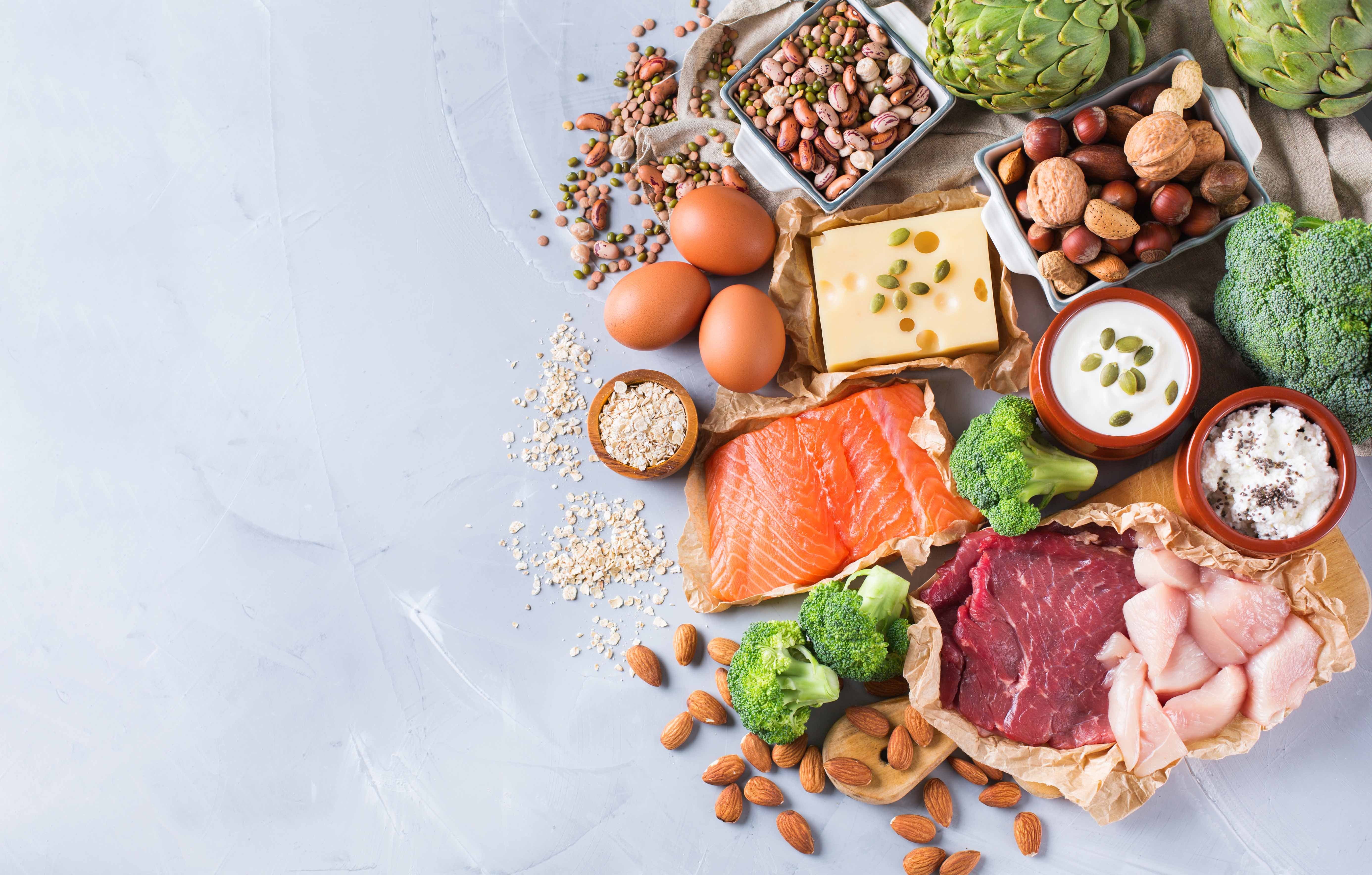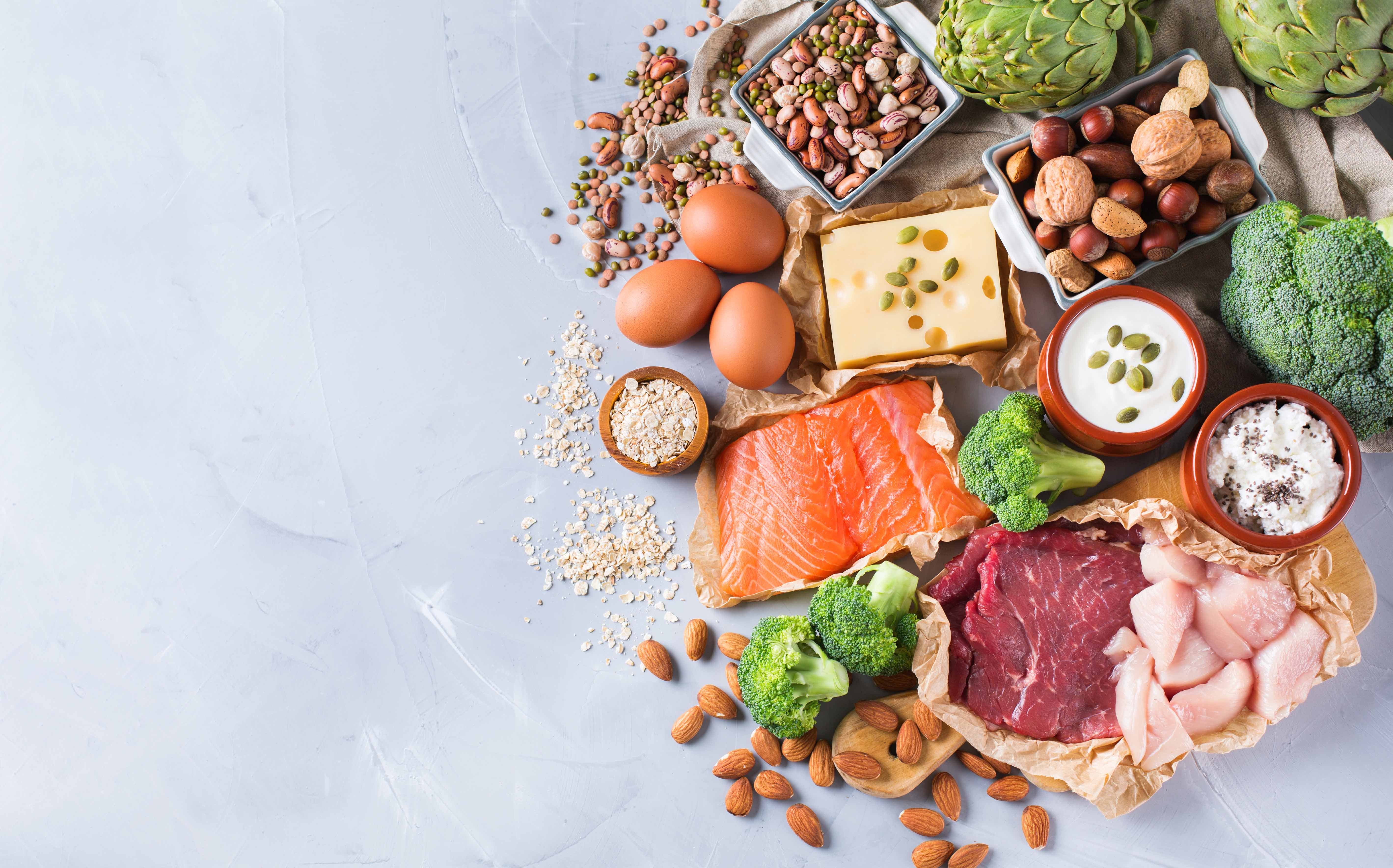The low-down on protein


Everyone knows protein is an important macronutrient but how much do you really need to be consuming every day (here’s a hint, it might be less than you think!) Here’s everything you need to know about calculating your daily protein needs, the best lean sources of protein, and how you can prep ahead of time for snack attacks and dinner-time emergencies.
How much protein do you need to consume every day?
The Recommended Daily Allowance of protein for healthy adults over the age of 19 is 0.8 grams of protein per kilogram of body weight. Your personal RDA is determined by the following formula:
Weight in kilograms (to find your weight in kilograms divide your weight in pounds by 2.2) multiplied by 0.8 = RDA of protein
For example:
70 kilograms x 0.8 grams of protein = 56 grams of protein per day
It is important to note that pregnant or breastfeeding women, children 18 and under, and some athletes will have a different RDA based on their individual needs.
Does protein keep you feeling full?
Protein is well-known for its satiating effects, that is, its ability to keep you feeling full for a longer amount of time when compared with fat and carbohydrates. Ensuring that protein is a part of your snacks and meals will help ensure that feeling of fullness. Research has shown that food sources of protein contribute to greater feelings of satiety when compared eaten as part of a meal or as a meal in and of itself.
ZeroPointTM food sources of protein
Chicken or turkey breast
A single 4-ounce serving of chicken breast contains 23 grams of protein and the same serving of turkey breast contains 27 grams of protein. Both chicken and turkey are incredibly versatile ingredients and are just as at home in an Italian-inspired meal as they are in Asian stir fry or Indian curry. Tuck sliced chicken or turkey breast into sandwiches and pita pockets for a healthy, filling lunch or use them to make any salad instantly meal-worthy. Chicken or turkey breast can be cooked and stored in the fridge for up to five days or tightly wrapped in the freezer for up to six months; raw chicken or turkey breast can be tightly wrapped and frozen for up to six months (alternately, they can be frozen directly into a marinade.)
Fish
Besides being a great source of lean protein, fish is also rich in omega-3 fatty acids, calcium, and vitamin D. Depending on the type of fish, a single serving can provide anywhere from 18 to 26 grams of protein. To reap all the nutritional benefits, fish can be purchased fresh or frozen and eaten poached, grilled, roasted, or sautéed depending on the recipe and personal preference. Tinned tuna and salmon are both very high in protein and are often a good choice for those who don’t care for fresh fish. Cooked fish can be stored in the fridge for up to 4 days and doesn’t freeze well due to its delicate texture.
Eggs
Delicious either on their own or dressed up, eggs are a perfect meal through and through. One large egg contains just over six grams of lean protein which makes them an ideal way to start the day or a filling snack when combined with whole grain bread or crackers, vegetables or fruit. Hard boil a dozen eggs at the beginning of the week for when you’re feeling famished but don’t have anything to eat immediately available (make sure to mark the carton “hard boiled” to prevent any raw eggs being cracked open by accident.).
Tofu
This plant-based protein contains almost 20 grams of lean protein per half-cup serving and is also an excellent source of calcium and manganese. Baked tofu is a cinch to make and can be marinated in any sauces or spices you like (press out any excess water with a paper towel before using to get the most flavourful tofu possible.) Tofu can also be dry fried or added to Asian-inspired soups and stir fries. Tofu can be marinated for up to 48 hours or frozen whole and crumbled into tofu scrambles after being defrosted.
Pulses
Not only are most members of the pulse family (which includes chickpeas, split peas, beans, and lentils) a good source of lean protein, they’re also very high in dietary fibre. This one-two nutrient punch means that you’ll stay full for a very long time after eating, as well as helping you meet your daily RDA of fibre. Keep a wide variety of canned beans around for instant hummus, refried beans, salad toppings, and marinated bean salad. Dried beans can be cooked in large quantities and frozen for later use.
